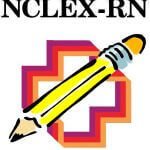Getting Started with TOEFL: What You Need to Know and When You Need to Know It
Welcome to this primer on the TOEFL test. If you have found your way to this post, then you are probably not a native English speaker. As a result, you may be nervous about the upcoming Test of English as a Foreign Language exam. It’s okay to be nervous. English is a difficult language to learn, especially when it is not your native language. Nevertheless, you will want to score well on the TOEFL exam, and being able to do so means that you must study and prepare. But first you need to know the basics. Exactly what should you expect? We now give you Getting Started with TOEFL: What You Need to Know and When You Need to Know It.
Structure of the TOEFL Test
The TOEFL exam is divided into four sections that are designed to test your level of written and spoken communication with the English language. The four sections are reading, listening, speaking and writing.
The reading section takes from one hour to 1.5 hours to finish.
The listening section consists of five to nine passages. Each passage runs about five minutes in length. After you listen to the passage, you will be asked five to six questions over each section and will be expected to answer correctly.
The speaking section requires you to speak into a microphone and give your answers orally to six different questions. You have one minute to speak your answers and should try to use the whole time.
Finally, the writing section asks for two written responses of around one page in length. It generally takes about 50 minutes to complete.
In all, you should expect the exam to take less than four hours to complete. This amount of time includes breaks.
Types of Questions on TOEFL
Each section asks different types of questions. Let’s start with the reading section. On this section, you will be give three to five reading sections. After each one, you will be asked 12 questions covering what you have just read. The subjects that you will be asked about include any area of study that you may find at a college or university, but they do not require a previous knowledge of the material. The reading passage will hold all the information that you need.
Questions will ask you to recall factual information from the reading passage. In contrast, they will ask you to point out which answer is the incorrect response.
Questions will focus on word meaning. (These are called vocabulary questions.) They will ask you to draw the best conclusion from the information given. (These are called inference questions.)
Questions may ask you to determine the purpose of the writer in providing certain details. (These are called purpose questions.) They may give you a sentence that is not in the reading passage but is related and then and ask you to find the best location within the passage to add the sentence.
Finally, you may be asked to summarize and restate information given; tell how a passage is laid out and why the writer chose to write the passage in that manner; and determine what a writer feels about the passage he has written (happy, sad, or mad, for example).
While these question types are what you can expect from the reading section alone, don’t panic. The other sections are not quite so involved with the types of questions they include. However, they can still be challenging without proper preparation.
Variations to Be Aware of from TOEFL Questions
As with the reading section, the listening and writing sections ask you to give factual information in your responses. Listening also requires you to determine the attitude of the author of a passage.
Where they differ are on these question types:
- Chart questions
- Integrated tasks
- Paired choice tasks
- Free topics tasks
Now we will examine each of these four question types: what they are asking and which sections they appear in.
Chart Questions
A chart question will be found on the listening section of the exam. It will require you to listen to a five-minute section. After you are finished, you will need to accurately put the information you have just heard into a chart.
Integrated Tasks
Integrated task questions are found on the speaking and writing portions of the TOEFL exam. An integrated task asks you to take a reading and listening section and then fashion your answers based on the information provided. On the writing section, you will have 20 minutes to produce a 250-word response that is a basic summary of what you have read and heard. On the speaking section, you will be given one minute per question to talk into a microphone about the information that you have read and heard.
Paired Choice Tasks
A paired choice task is found on the speaking section and may ask you to make a comparison between two things, such as “Would you rather live in the United States OR another English-speaking country, and why?” From there, you will have one minute to speak your response into the microphone.
Free Choice Tasks
A free choice task is found on the speaking section of the exam, and it asks you how you feel about a certain topic. It could be something as simple as what your favorite holiday is (and why). You’ll have one minute to answer this type of question, which you will do by speaking into the microphone.
Taking Notes
No matter what the TOEFL asks, make sure to take good notes. Remember not to write in complete sentences as you do so, for this will certainly lead to your missing key information that can help you to correctly answer a question. Instead think in keywords as you would when searching for something on the Internet. Instead of writing out a sentence like, “Christopher Columbus arrived in the New World on 1492,” you would instead write something like “C. Columbus, 1492.” If you are actively listening or paying attention, then your mind will be able to keep up with reading and listening passages without falling behind. And when you come back to your notes, these keyword triggers will help jog your memory.









